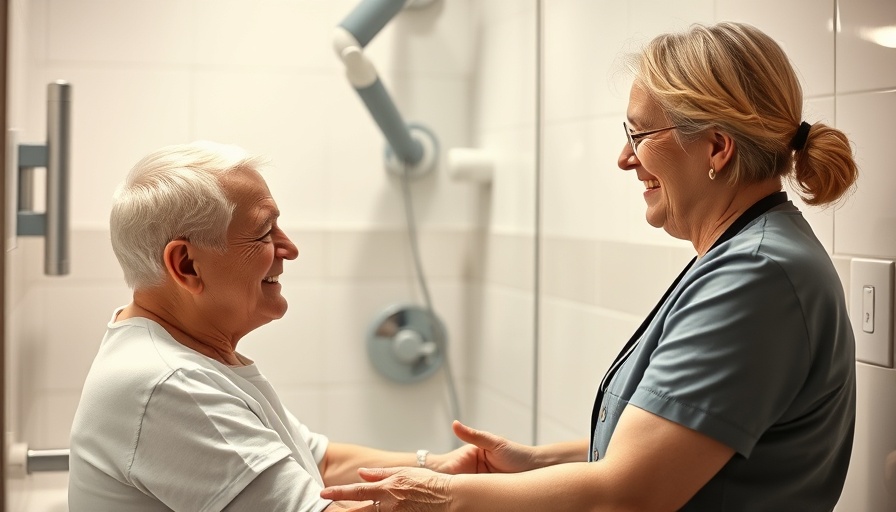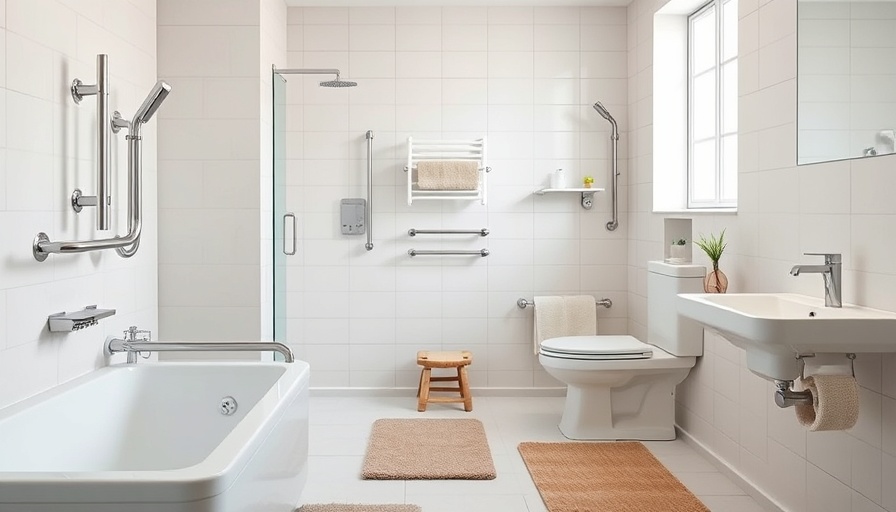
The Essential Role of Bathing in Elder Care
Bathing is more than just a daily routine; it’s an essential aspect of maintaining both physical and mental health for seniors. In Toms River and beyond, the intricate relationship between cleanliness and overall well-being cannot be overstated. Proper bathing routines help minimize skin infections and other health risks associated with inadequate hygiene, especially important for older adults whose skin can be thin and easily damaged.
Furthermore, the act of bathing can have profound psychological benefits. A warm bath can soothe tension, foster relaxation, and provide seniors with a sense of normalcy and comfort. This is particularly valuable in enhancing the emotional well-being of seniors, as they can feel like they are carrying out a normal aspect of life rather than enduring a chore.
Creating a Safe Environment for Bathing
Safety is the cornerstone of elder care, particularly in the bathroom where many accidents can occur. Establishing a secure bathing environment goes a long way in safeguarding seniors. Ensure the installation of non-slip mats, grab bars, and sufficient lighting to prevent slips and falls. A shower chair can also provide additional support, making the bathing process safer for seniors with limited mobility.
In addition, temperature regulation is crucial. Since seniors may have diminished sensitivity to heat, caregivers should always check the water temperature to prevent burns, ensuring it is comfortably warm. This attention to detail demonstrates care and respect for their comfort.
Maintaining Dignity and Independence
A key aspect of bathing assistance lies in promoting seniors' independence and dignity. Caregivers should be mindful about respecting boundaries while still being present for assistance. Privacy can be achieved with curtains or screens, allowing seniors to feel more at ease during their bathing routines. This simple act helps enhance their dignity and dignity in the bathing process.
Encouraging participation is also vital. Guidelines suggest that caregivers should set up bathing supplies for easy access to encourage seniors to engage in their self-care. Techniques such as using long-handled sponges can assist seniors in washing hard-to-reach areas, allowing them to maintain autonomy while still being supported.
Promoting Emotional Well-Being through Bathing
Recognizing the psychological aspects of bathing is essential for caregivers. For seniors, the act of bathing can trigger feelings of nostalgia or connection to past routines, which can significantly contribute to their emotional health. Discussing preferences in bathing methods or establishing a routine can bring structure and a sense of belonging, enhancing their overall well-being.
Moreover, social connections during bathing can also foster a sense of community. For instance, sharing bathing experiences or personal stories can transform an ordinary task into an opportunity for bonding between caregivers and seniors.
The Future of Elder Care: Innovative Solutions
As our society becomes increasingly aware of the needs of aging populations, innovative solutions are emerging that prioritize elder care and accessibility. Technologies designed for bath safety, like assistive bathing devices, are revolutionizing how we think about senior hygiene. These advancements offer improved support, maximizing safety while encouraging seniors to maintain personal hygiene practices independently.
The trend toward customization in elder care is also notable, as more caregivers are considering individual preferences in designing bathing experiences that suit specific needs. This includes personalized techniques and tools that are tailored to enhance comfort and security based on individual capabilities.
A Call to Action for Caregivers
It is essential for caregivers to adopt a holistic view when assisting with bathing routines. The combined approach of physical safety, emotional support, and fostering independence creates an optimal bathing experience that benefits seniors greatly. To learn more about how you can make a difference in the lives of seniors, please explore the various caregiver resources available to enhance your knowledge and skills.
In conclusion, prioritizing a thoughtful and methodical approach to bathing assistance is vital for promoting both health and happiness among seniors. By fostering independence and dignity, caregivers can help ensure that bathing remains an essential part of senior wellness.
 Add Row
Add Row  Add
Add 




 Add Row
Add Row  Add
Add 

Write A Comment